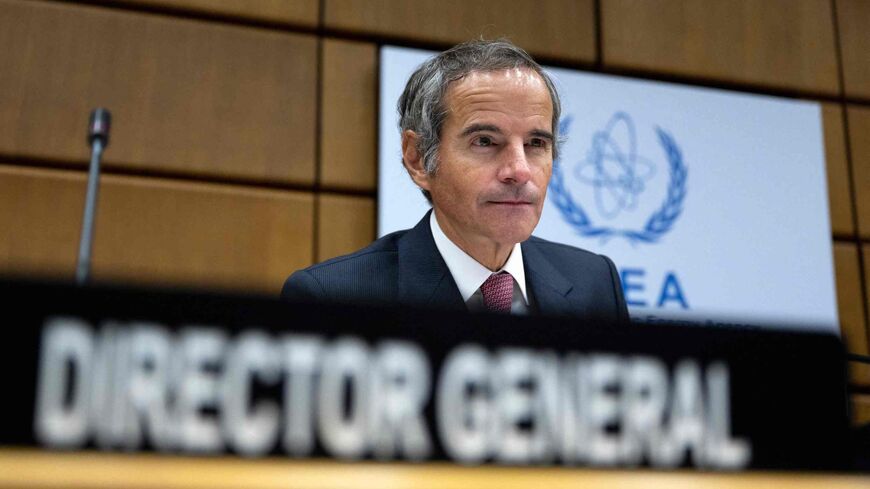The head of the International Atomic Energy Agency (IAEA) Rafael Grossi will land in Tehran late Friday for talks on the Islamic Republic's nuclear activities, Iran's state media outlets reported. The visit comes as nuclear talks hit a stalemate with the West, and amid warnings that Iran's uranium enrichment is closer to the weapons-grade bar.
On his fourth trip to Tehran since taking the helm in late 2019, Grossi is expected to sit down with Iran's atomic chief Mohammad Eslami. More importantly, however, he is reported to have requested a meeting with hard-line President Ebrahim Raisi.
Despite a period of relatively stable cooperation between the two sides after the implementation of the 2015 Iran nuclear deal, relations between Tehran and the IAEA have increasingly strained over the past two years. The watchdog accuses Tehran of stonewalling probes into its nuclear enrichment program, most notably after inspectors detected activity at two undeclared sites last year.
Under the nuclear deal, the Joint Comprehensive Plan of Action (JCPOA), Iran was required to adhere to a strict cap of 3.67% on its enrichment in exchange for sanctions relief. Nonetheless, since the US withdrawal from the accord in 2018, the rate has been exponentially raised as high as 60%. In justifying the breaches, Iran has also cited the three European signatories' failure to deliver on the JCPOA's promised economic dividends.
On Tuesday, an IAEA report obtained by The Associated Press revealed that Iran had taken its enrichment to yet another level, 83.7%, just slightly below the purity rate needed for developing a nuclear bomb.
Reacting one day later, Eslami, the Iranian atomic chief, did not dismiss the claim, according to comments carried by the IRNA news agency. Yet he noted that the inspectors' data was based on a tiny sample "even invisible to a microscope" and said, "What counts is the volume of the stored uranium."
Grossi's Tehran visit is taking place ahead of his mid-March trip to Washington and a fresh quarterly meeting of the IAEA board of governors, which formally and strongly criticized Tehran's failure to cooperate in its last meeting in November.
The timing, according to the Iranian Reformist daily Etemad, has given the trip more of a political rather than a technical nature. Given the ongoing tensions with the West, the paper argued in a Thursday front-page article, "The political aspects of the visit are no secret to anyone."
Tehran has long accused the IAEA of bowing to pressure from the United States, its European allies and Israel while drafting its inspection reports.
This time around, Iranian authorities appear to be still shrugging off Western worries and have come out with new warnings over a potential resolution from the board of governors.
Foreign Minister Hossein Amir-Abdollahian addressed the issue at a UN disarmament conference in Geneva earlier this week. "Iran reserves the right to reciprocal measures," he said.
The Wall Street Journal reported on Thursday that Britain, France and Germany are pushing for a public censure of Tehran in response to its enrichment levels, while the Biden administration is reluctant to do that. Israel has also stepped up its military planning for possible strikes against Iran's nuclear infrastructure.







